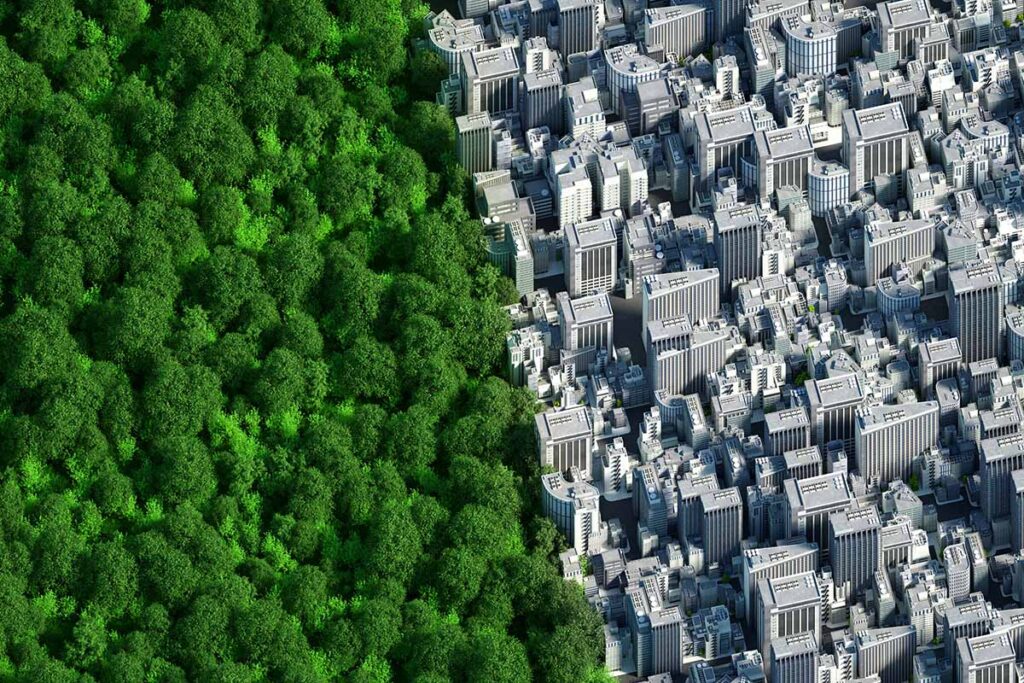Where you live, work, and go to school (in other words, your environment) impact your health in a big way.
We’ve seen chemical spills in multiple places in the U.S. in the past few months. Those stories show us how devastation in your environment can affect your health.
But there are other ways your environment, or the places you spend the most time, can help or hurt your health in other ways, too. Lead pipes, pollution, and a lack of parks or playgrounds don’t grab as many headlines. But their impact on your health can be just as big.
What Is Environmental Health Equity?
When it comes to the social determinants of health, one of the largest is the environment. The air you breathe and the water you drink affect your health in big ways. These effects start before you’re even born.
Picture your childhood home. Was it an older home with lead pipes? Did you have a yard to play in? How close did you live to a major highway?
Each of those things can help, or hurt, your health. Research shows social determinants of health decide 80% of your health. Things like how much money your family has and your parents’ jobs impact where you’re able to live, work, and go to school.
Environmental health equity looks at how those places, or your personal environment, impact your health. And how your health might look different from another person’s because of all these social determinants of health.
Where Can We See Environmental Health Inequity?
People in poorer communities have a greater risk for exposure to air and water pollution. And racism means the deck is stacked higher against minorities. Even minorities with higher incomes are at increased risk for illness from pollution.
After decades of residential segregation, minorities tend to live with more air, water, and noise pollution in their neighborhoods. And this puts people at risk for serious problems like asthma, heart disease, and cancer.
Major sources of pollution, like pipeline drilling, are more likely to be located in Black or Hispanic communities. Because of these, people in these communities are at greater risk for premature death from pollution, according to the American Lung Association.
These inequalities have only become more pronounced with climate change. And they’re projected to become even less fair in the future.
It’s inequitable and unsustainable. And it feels insurmountable.
Subscribe to Our Newsletter
Get health news delivered to your inbox.
You Can Help Overcome Environmental Health Inequity
The impacts the environment has on health, and the inequality of those who are most affected by them, were the themes of a recent Medical Center Hour at UVA. Medical Center Hours are a public forum on medicine and society. For this hour on Addressing Environmental Health Inequity, speakers Ebony Hilton, MD, Irène Mathieu, MD, Tracy Kelly, DNP, and Lena Bichell shared their experiences and knowledge.
How You Can Get Started
The first challenge with helping is knowing where to start. You may be afraid to overstep. Or think you can’t make a difference.
Here are some of the takeaways from the Medical Center Hour:
- Think Locally — You can’t solve the climate crisis on a global scale. But you can make a difference close to home.
- Get Informed — Sign up for newsletters to find out what’s going on locally. For example, at Virginia Clinicians for Climate Action, you can find actions specific to Virginia and health professionals.
- Amplify Others — Instead of dropping in to be the main character, think of ways to support the people who are already doing the work. Don’t talk for or over top of others.
- Start with One — Pick one thing that you care about. Then get involved with that.
First, Answer 3 Key Questions
Mathieu shared an exercise from the book “All We Can Save” with the crowd. To figure out your starting point, you need to find the answers to three crucial questions. Ask yourself what:
- You like to do?
- You’re good at?
- Needs to be done?
Then find the point where these three circles overlap. And see your role in making the environment healthier for all.
Watch the full Medical Center Hour and find the schedule for future events here.
